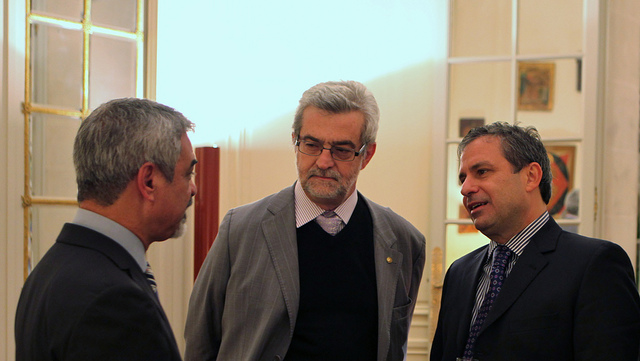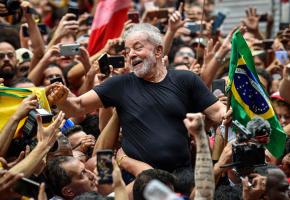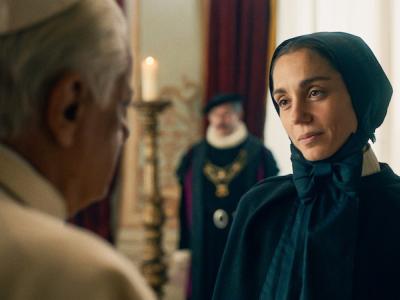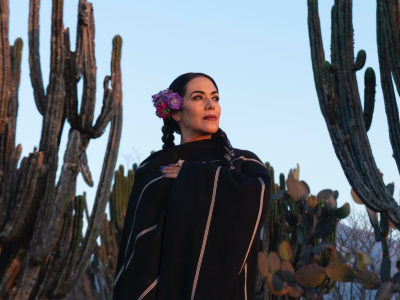As director-general of the Organization for the Prohibition of Chemical Weapons (OPCW) from 1997, José Bustani’s role had been to rally 58 outstanding countries to sign up to immediate weapons inspections. He was so good at his job that by April 2002, he managed to sign up 147 nations…one of which was to be Iraq. Suddenly, months before the attack on Iraq, the US accused Bustani of 'mismanagement' and, in an unprecedented manoeuvre, removed him from his post. He was left out in the cold, by the British, but also by a Brazilian government ( before Lula), too scared to stand up to the US. Bustani talks for the first time about US neo-con ruthlessness when it comes to getting what it wants.
Candela: Firtsly, could you say exactly what your role was at the OPCW and what you achieved regarding the Iraqi regime before the US' decision to attack it?
José Bustani: Well, I’m talking about 2002. Don’t forget that since 1998, the regime in Iraq had expelled all the inspectors so the international community was very anxious. Four years without inspection, nobody knew what could be happening there. And of course it was my duty as the Director General to bring countries into the OPCWv and make them accept the conditions. I was mandated by the conference to do that. And in the process when I joined as Director General, there were 67 countries taking part and by the time I left there were 147. That means we were talking to countries and convincing them of the advantages etc etc. Iraq was just one more country we were talking to.
Candela: Could you describe the timing of your dismissal and whether you think it had anything to do with the plans to attack Iraq?
JB: I think that you should ask this question to the Americans. I can only conclude that there was no other reason but this one. Because I am very proud of the administrative skills that I had applied to OPCW, which surprised me in the first place (laughs), to the point where I was re-elected by acclamation for a second period. So one has to ask the Americans why is it that you together with the Russians, came to Mr Bustani one year before the end of his term and thought that I had to go for mismanagement reasons. This is completely outrageous because there was no mismanagement.
Candela: Before you were dismissed. Did you get pressurised in anyway?
JB: Yes, there was immense pressure put on me. I received calls from particular individuals in the Bush administration and some of them were quite threatening, personally threatening, to myself and my family. But I stuck my ground and that is why, I imagine, they found another way.
Candela: Who was it exactly that was making these phone calls?
JB: I cannot name names. But it was someone involved also in pressurising individuals at the UN at the time?
Candela: You mean John Bolton, the US ambassador to the UN?
JB: I cannot comment.
Candela: but you do not deny it...
JB: No comment
Candela: What kind of feeling were you left with after that happened. Did you get any support?
JB: I did get enormous public support in Brazilian circles. The problem was that the media did not cover what happened to me. Particularly in the United States the media is controlled, well you know that, so in the industry, I had one published by The Guardian, George Monbiot wrote a number of articles. In Germany there were articles, in Italy there were articles. But the OPCW was a new organisation I as the first director. In The Hague, there are no foreign correspondents in The Hague, so there was no exposure to the organisation.
Candela: What were you doing that could have jeopardised the American plans?
JB: I can’t reply directly to this question. But I can say that what we were about to do, As I said Iraq had been four years without inspection, it was my duty as the Director General to bring countries into the OPCW and make them accept the conditions. I was mandated by the conference to do that. When I joined as Director General, there were 67 countries taking part and by the time I left there were 147. That means we were talking to countries and convincing them of the advantages of cooperating etc etc. So Iraq was just one more country.
Candela: And they were about to sign-on?
JB: Exactly. And if this would have happened one month after the acceptance, according to the rules, we had to start inspecting Iraq. Why they didn’t want Iraq inspected you should ask them.
















